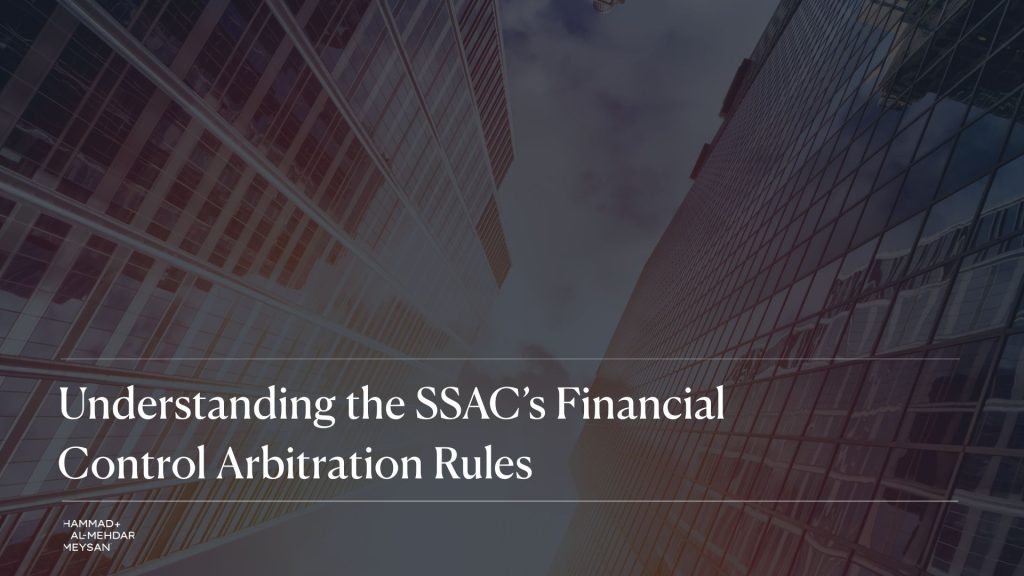
The Saudi Stock Exchange Arbitration Centre (SSAC) plays a critical role in maintaining the integrity and efficiency of financial markets in Saudi Arabia. One of the key tools in its regulatory framework is the Financial Control Arbitration Rules, which provide a structured mechanism for resolving disputes related to financial oversight, governance, and compliance. Understanding these rules is essential for financial institutions, listed companies, and investors operating within the Kingdom’s increasingly sophisticated capital markets.
The Financial Control Arbitration Rules are designed to ensure that disputes arising from financial control matters are addressed promptly, fairly, and in a manner consistent with Saudi regulatory standards. These rules apply to a wide range of scenarios, including disagreements over financial reporting, audit findings, compliance with internal control obligations, and adherence to corporate governance requirements. By establishing a specialised arbitration process, the SSAC offers an alternative to traditional court proceedings, enabling parties to resolve conflicts in a confidential, efficient, and legally binding manner.
One of the distinguishing features of the SSAC’s rules is their emphasis on expertise and impartiality. Arbitrators appointed under the Financial Control Arbitration Rules are typically professionals with specialised knowledge in finance, auditing, and corporate governance. This ensures that decisions are not only legally sound but also technically informed, reflecting best practices in financial oversight. The rules also provide clear guidelines on the selection, appointment, and responsibilities of arbitrators, thereby promoting transparency and trust in the arbitration process.
The procedural framework under these rules is carefully structured to balance efficiency with due process. It includes provisions for initiating arbitration, submitting evidence, conducting hearings, and issuing binding awards. Parties to a dispute are allowed to present their case entirely, including the submission of expert reports, financial analyses, and other relevant documentation. Notably, the rules allow for interim measures to be requested, such as temporary freezes on disputed financial actions or access to essential financial records, thereby protecting the rights and interests of all parties pending the final resolution of the dispute.
Enforcement of arbitral awards under the SSAC’s Financial Control Arbitration Rules is robust and aligned with Saudi law. Awards issued by the SSAC are recognised as final and binding, with limited grounds for challenge, ensuring that parties can rely on the enforceability of the decision. This predictability is particularly valuable in financial disputes, where timely resolution can have significant implications for market stability, investor confidence, and corporate reputation.
Beyond dispute resolution, the rules contribute to the broader objectives of financial governance in Saudi Arabia. By codifying a transparent and professional process for handling financial control disputes, the SSAC reinforces regulatory compliance, encourages responsible corporate behaviour, and supports the overall integrity of the capital markets. For businesses and investors, familiarity with these rules is not only a matter of legal compliance but also a strategic consideration, enabling them to manage risks proactively and engage with the market with confidence.
The SSAC’s Financial Control Arbitration Rules represent a sophisticated and essential framework within Saudi Arabia’s financial regulatory landscape. By combining technical expertise, procedural clarity, and enforceable outcomes, these rules provide a reliable mechanism for resolving disputes related to financial control, thereby safeguarding market integrity and promoting confidence among market participants. For any entity involved in the Kingdom’s capital markets, understanding and effectively navigating these rules is a critical aspect of financial governance and risk management.
